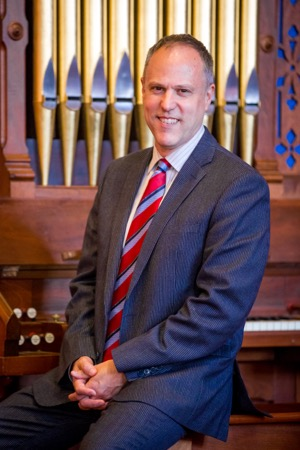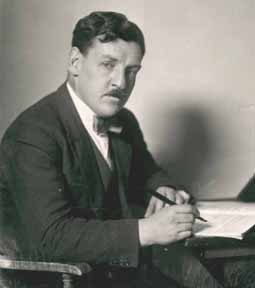Veni, Sancte Spiritus trans. Edward Caswall, Lyra Catholica, 1849 Music Richard J Clark
This is a sequence for Pentecost Sunday.
Coome, thou Holy Spirit Come!
And from thy celestial home
Shed a ray of light divine!
Come thou Father of the poor!
Come thou source of all our store!
Come, within our bosoms shine!
Thou of comforters the best;
Thou the soul's most welcome guest;
Sweet refreshment here below;
In our labour rest most sweet;
Grateful coolness in the heat;
Solace in the midst of woe.
O most blessed light diviine,
Shine within these hearts of thine,
And our inmost being fill!
Where thou art not, man hath nought,
Nothing god in deed or thought,
Nothing free from taint of ill.
Heal our wounds, our strength renew;
On our dryness pour thy dew;
Wash the stains of guilt away;
Bend the stubborn heart and will;
Mel the frozen,warm the chill;
Guide the steps that go astray.
On the faithful, who adore
And confess thee evermore
In thy sev'nfold gift descend;
Give them virtue's sure reward;
Give them thy salvation, Lord.
Give them joys that never end.
Edward Caswall, CO, (15 July 1814 – 2 January 1878) was a clergyman and hymn writer who converted to Catholicism and became an Oratorian priest. His more notable hymns include: "Alleluia! Alleluia! Let the Holy Anthem Rise"; "Come, Holy Ghost"; and "Ye Sons and Daughters of the Lord".
He was born at Yateley, Hampshire on 15 July 1814, the son of Rev. R. C. Caswall, sometime Vicar of Yateley, Hampshire.
Caswall was educated at Chigwell School, Marlborough Grammar School and Brasenose College, Oxford, where he graduated Bachelor of Arts in 1836 with honours and later proceeded to Master of Arts. In 1838 he was ordained deacon, and in 1839 priest, in the Church of England. Before leaving Oxford, he published, under the pseudonym of Scriblerus Redivivus, The Art of Pluck, a satire on the ways of the careless college student.
He was curate of the Church of St Lawrence at Stratford-sub-Castle, near Salisbury from 1840 to 1847. As curate, he would invite the children who had attended morning services to the parsonage and give them breakfast. On the anniversary on one's baptism, he would give some money to buy clothes. In the summer of 1846 he, his wife, and his brother Tom visited Ireland.
He resigned his curacy and, in January 1847, was received into the Catholic Church by Cardinal Januarius Acton in Rome. His brother Tom had converted to Catholicism previously. Caswall's conversion caused an estrangement from some members of his family, including his mother and brother Alfred. His wife, Louisa Stuart Caswall, who had also become a Catholic, died of cholera on 14 September 1849 while they were staying at Torquay. The following year Caswall joined the Oratory of St. Philip Neri under future-cardinal John Henry Newman, to whose influence his conversion to Catholicism was due. He was ordained a Catholic priest in 1852. Caswall was delegated the responsibility of establishing the Oratory school, which opened in 1859. He often served as acting superior in Newman's absence.
He died at the Birmingham Oratory, Edgbaston on 2 January 1878 and was buried at Rednal, near Bromsgrove, Worcestershire.
 |
Caswall c1860
Taken from Wikipedia
RICHARD J. CLARK is an eclectic musician — composer, conductor, organist, pianist, and songwriter. He is the Director of Music of the Archdiocese of Boston and the Cathedral of the Holy Cross where he plays the 101-rank 1875 E. & G. G. Hook & Hastings organ, Opus 801. He previously served for twenty-eight years at St. Cecilia Parish, Boston. At the age of twenty-three, he was appointed Director of Music in 1992 after serving as Organist since 1989. He has also has served the Jesuit Community as Chapel Organist (Saint Mary’s Chapel) at Boston College since 2004. Over the years, he has served the Archdiocese of Boston in numerous liturgies, conferences, and liturgical projects, including directing the Office of Divine Worship Saint Cecilia Schola in recordings of the ICEL Chants from the Roman Missal, Third Edition.
The Boston Musical Intelligencer hails his “compelling,” and “emotionally committed” organ playing. The Boston Globe calls the music of the Cathedral Choir “stirring” and “profound.” The American Organist magazine praises Gregorian Impressions for its “engaging developments,” and Ministry & Liturgy Magazine has called his music “transformative” as well as “expertly arranged and prayerfully sung.” Clark’s compositions have been performed worldwide including performances in Russia of his organ work Ascent to Freedom by American virtuoso Mark Husey and various performances by the American Boychoir under the direction of GRAMMY-winning conductor Fernando Malvar-Ruiz. His Te Deum for Orchestra, soloists, and chorus was premiered in Paris in April of 2022. Ministry & Liturgy Magazine has called his music “transformative” as well as “expertly arranged and prayerfully sung.” His liturgical, choral, and organ works are published by World Library Publications, Lorenz/The Sacred Music Music Press, CanticaNOVA Publications, RJC Cecilia Music, and Corpus Christi Watershed. As performer and composer his eclectic appearances include St. Patrick’s Cathedral (NY), Saint-Eustache (Paris), the Basilica of the National Shrine of the Immaculate Conception (D. C.), EWTN, the Celebrity Series of Boston, Fenway Park, and the New York Songwriters Circle at NYC’s historic “The Bitter End.”
His compositions have been broadcast on radio in New York, New England, and Europe. He appears with his wife, clarinetist Kara Gretschel Clark, on the Cathedral Encores CD featuring the 1875 E. & G.G. Hook, Opus 801, at the Cathedral of the Holy Cross (Boston). He also appears with trumpeter Richard Kelley on RJC Cecilia Records of his 2012 Requiem pour une américaine à Paris, and the 2022 release Fearfully and Wonderfully Made CD which includes a collaboration with GRAMMY-nominated poet E. Ethelbert Miller on the track “If My Blackness Turns to Fruit.” His 2021 release of the Boston Cathedral Singers From the Bell Tower has been featured on Rome Reports TV, and SIRIUS XM’s Sounds from the Spires with Dr. Jennifer Pascual. He has also been featured by the Organ Media Foundation (here and here.) He has also served as conductor for Pueri Cantores and on the faculty of the Sacred Music Symposium in Los Angeles, California. He has been a featured speaker and performer for National Pastoral Musicians (NPM) national meetings. He currently serves on the Executive Board of the National Federation of Diocesan Liturgical Commissions (FDLC).
Born in Greenwich Village, New York City, he grew up in Long Island, New York. He currently lives with his wife and four children in Milton, Massachusetts.
 | Richard J Clark
|
Taken from RJC Cecilia Music. | | | | | | | | | | | |







